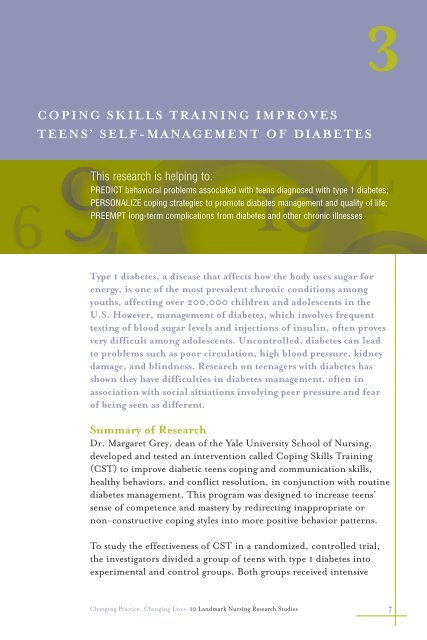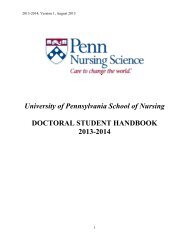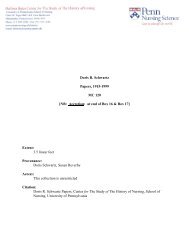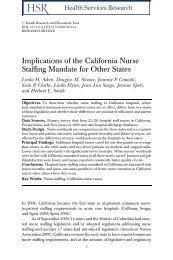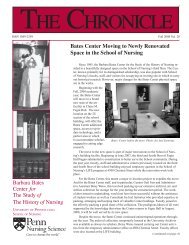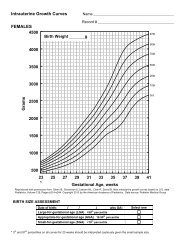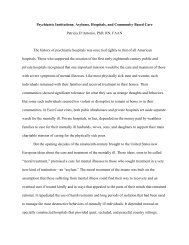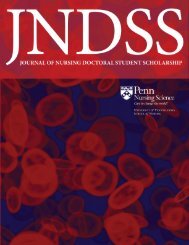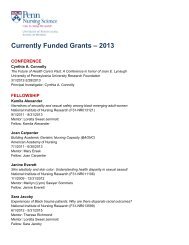10 Landmark Nursing Research Studies - National Institute of ...
10 Landmark Nursing Research Studies - National Institute of ...
10 Landmark Nursing Research Studies - National Institute of ...
You also want an ePaper? Increase the reach of your titles
YUMPU automatically turns print PDFs into web optimized ePapers that Google loves.
COPING SKILLS TRAINING IMPROVES<br />
TEENS’ SELF-MANAGEMENT OF DIABETES<br />
Type 1 diabetes, a disease that affects how the body uses sugar for<br />
energy, is one <strong>of</strong> the most prevalent chronic conditions among<br />
youths, affecting over 200,000 children and adolescents in the<br />
U.S. However, management <strong>of</strong> diabetes, which involves frequent<br />
testing <strong>of</strong> blood sugar levels and injections <strong>of</strong> insulin, <strong>of</strong>ten proves<br />
very difficult among adolescents. Uncontrolled, diabetes can lead<br />
to problems such as poor circulation, high blood pressure, kidney<br />
damage, and blindness. <strong>Research</strong> on teenagers with diabetes has<br />
shown they have difficulties in diabetes management, <strong>of</strong>ten in<br />
association with social situations involving peer pressure and fear<br />
<strong>of</strong> being seen as different.<br />
Summary <strong>of</strong> <strong>Research</strong><br />
Dr. Margaret Grey, dean <strong>of</strong> the Yale University School <strong>of</strong> <strong>Nursing</strong>,<br />
developed and tested an intervention called Coping Skills Training<br />
(CST) to improve diabetic teens coping and communication skills,<br />
healthy behaviors, and conflict resolution, in conjunction with routine<br />
diabetes management. This program was designed to increase teens’<br />
sense <strong>of</strong> competence and mastery by redirecting inappropriate or<br />
non-constructive coping styles into more positive behavior patterns.<br />
To study the effectiveness <strong>of</strong> CST in a randomized, controlled trial,<br />
the investigators divided a group <strong>of</strong> teens with type 1 diabetes into<br />
experimental and control groups. Both groups received intensive<br />
3<br />
This research is helping to:<br />
PREDICT behavioral problems associated with teens diagnosed with type 1 diabetes;<br />
PERSONALIZE coping strategies to promote diabetes management and quality <strong>of</strong> life;<br />
PREEMPT long-term complications from diabetes and other chronic illnesses.<br />
Changing Practice, Changing Lives: <strong>10</strong> <strong>Landmark</strong> <strong>Nursing</strong> <strong>Research</strong> <strong>Studies</strong> 7


